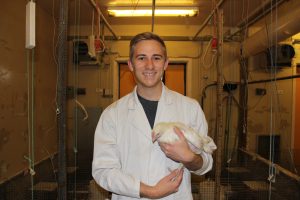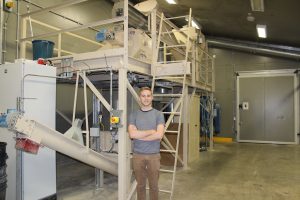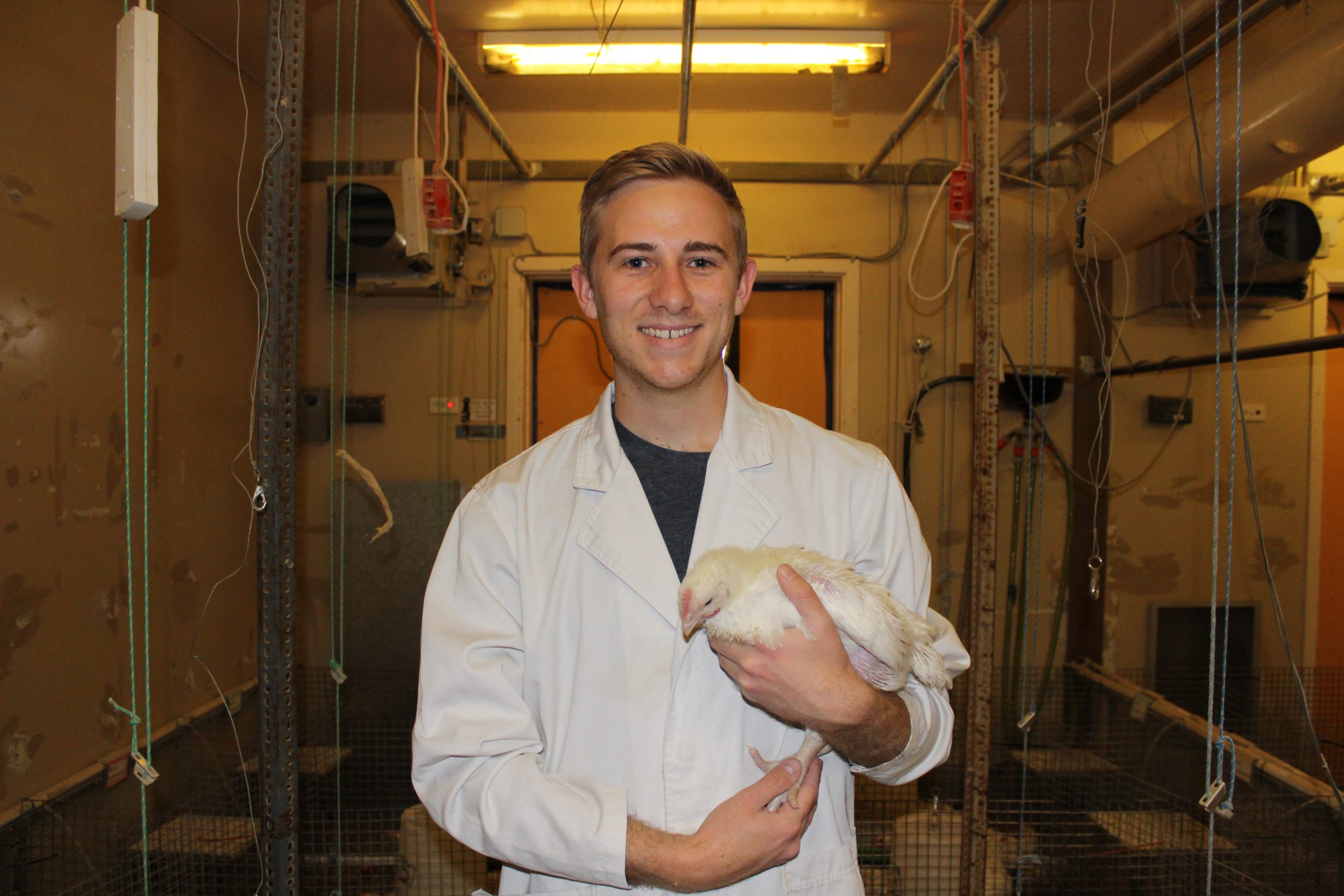Employing Nonessential Amino Acids to Fortify Low Protein Diets
By Matthew Hilliar
G’day! My name is Matthew Hilliar, I’m 23 and I’m in the second year of my PhD at the University of New England (UNE). I grew up in a town on the Mid North Coast NSW called Kempsey, but don’t hold that against me. I spent a lot of time with animals, working on the ‘blended’ family dairy farm and as a ‘chicken enthusiast’ with the Wauchope Poultry Club. With my background and love of animals and in particular chickens, I have to say that my career choice wasn’t necessarily by chance. I completed by Bachelor of Science at UNE in 2014 and didn’t hold back, jumping immediately into an Honours project with Prof Bob Swick, Associate Prof Shubiao Wu and Associate Prof Julie Roberts. The project involved comparing calorimetry methods with laying hens, to help develop the layer net energy project here at UNE and was funded with the Jeff Fairbrother scholarship from the Poultry CRC in 2015.

With encouragement from Prof Mingan Choct, I began applying for different PhD projects relevant to the poultry industry, as this is the path I wanted to pursue following the submission of my Honours thesis. Thankfully I attended PoultryGrad 2015, which gave me the opportunity to meet Dr Kylie Hewson, who later stepped into the Chicken Meat Program Development role at RIRDC, now AgriFutures. Meeting Kylie beforehand made the whole process of applying for the AgriFutures scholarship a lot easier. I also attended APSS in 2016 where I met Girish Channarayapatna from Evonik and Greg Hargreave of Baiada who helped come up with my PhD project; Employing nonessential amino acids to fortify low protein diets, which is funded by Evonik. My supervisors are Prof Bob Swick, Associate Prof Shubiao Wu, Dr Reza Barekatain and Mr Greg Hargreave.
Studying a PhD has been rewarding as I gain new knowledge every day. I’m pleased with my area of study, as I find low protein diets will give the poultry industry an even more sustainable and marketable image. I’m especially interested in seeing how the different enzymes are affected by different amino acid supplements which brings a more personal drive to learn more in my own industry relevant project. Even though every project experiences its downs, I find the challenges I face help shape me to become a more flexible and realistic scientist and enable me to learn more about the project and myself.
The team at UNE have been incredibly helpful, offering support and encouragement to each other. I love the diversity of the team, with male and female students of different ages originating from different countries, it enables us to have a multifaceted approach to our studies at UNE. My support network doesn’t end at UNE though, as I find myself frequently sending emails and messages to students from other institutions and industry members that I have met through conferences and the Poultry CRC.
 The thing I have most enjoyed about the poultry industry has been the communication between industry and research on a continental scale. As you can see from what I have said earlier, a lot of opportunities I have been presented were with thanks to programs and conferences like PoultryGrad and APSS, and being given the chance of a conversation. I can’t imagine where I would be without those conversations or even a simple introduction. I encourage all students to put themselves out there at conferences and get to know people whether they’re other students, journalists, researchers or company executives, you just don’t know what opportunities may arise from a simple greeting.
The thing I have most enjoyed about the poultry industry has been the communication between industry and research on a continental scale. As you can see from what I have said earlier, a lot of opportunities I have been presented were with thanks to programs and conferences like PoultryGrad and APSS, and being given the chance of a conversation. I can’t imagine where I would be without those conversations or even a simple introduction. I encourage all students to put themselves out there at conferences and get to know people whether they’re other students, journalists, researchers or company executives, you just don’t know what opportunities may arise from a simple greeting.
Hopefully at the end of my PhD I have set up a great base camp because I have enjoyed the last two years of my career and I look forward to working in this industry that I have become quite fond of.


